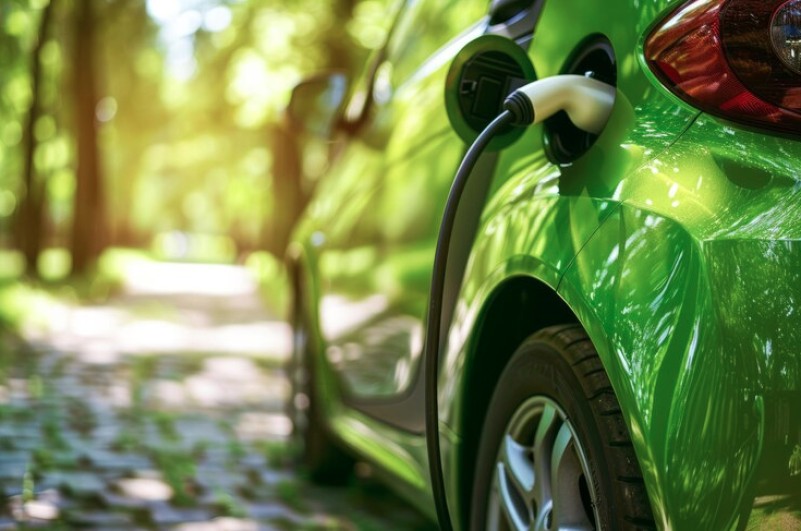
Dubai is renowned for its futuristic skyline, luxurious lifestyle, and innovative spirit. Now, the city is channeling this innovation towards a more sustainable future through the Dubai Green Mobility Initiative. This ambitious program aims to revolutionize the transportation sector by promoting the adoption of electric vehicles (EVs) and other eco-friendly transportation modes. Here's a closer look at the initiative, its goals, and the progress made so far.
Overview of the Dubai Green Mobility Initiative
Launched by the Dubai Supreme Council of Energy, the Dubai Green Mobility Initiative is part of the broader Dubai Clean Energy Strategy 2050. The primary objective is to make Dubai a global hub for green economy products and technologies while reducing carbon emissions and improving air quality.
Key Goals of the Initiative
1. Increase EV Adoption: Encourage residents and businesses to switch to electric and hybrid vehicles.
2. Expand Charging Infrastructure: Develop a comprehensive network of EV charging stations across the city.
3. Promote Public Transport: Enhance the use of electric public transport options, including buses, trams, and metro systems.
4. Sustainable Fleet Management: Transition government and corporate vehicle fleets to electric and hybrid options.
5. Raise Awareness: Educate the public about the benefits of green mobility and sustainable practices.
Incentives and Support for EV Adoption
To accelerate the shift to electric vehicles, the Dubai government has introduced a range of incentives and support measures:
Financial Incentives
- Reduced Registration Fees: EV owners benefit from lower vehicle registration fees.
- Free Charging: DEWA offers free charging at public charging stations for registered EVs for a limited period.
- Exemption from Tolls: EVs are exempt from Salik toll charges, reducing the cost of daily commutes.
Non-Financial Incentives
- Dedicated Parking: EV owners enjoy priority parking spots in key areas such as malls, airports, and government buildings.
- Green Plates: Special green number plates are issued to EVs, providing recognition and encouraging others to adopt sustainable practices.
Development of Charging Infrastructure
A crucial aspect of the Green Mobility Initiative is the development of a robust EV charging infrastructure. The Dubai Electricity and Water Authority (DEWA) is spearheading this effort through its Green Charger initiative.
Types of Charging Stations
1. Public Chargers: Located in strategic locations such as shopping malls, public parking lots, and tourist attractions.
2. Home Chargers: DEWA provides support for the installation of home chargers, allowing EV owners to charge their vehicles conveniently overnight.
3. Fast Chargers: These are placed along major highways and in high-traffic areas to provide quick charging options, significantly reducing downtime for EV users.
Expansion Plans
By 2025, Dubai aims to have over 1,000 public charging stations, ensuring that EV owners are never far from a charging point. This extensive network will play a critical role in alleviating range anxiety and encouraging more residents to switch to electric vehicles.
Promoting Electric Public Transport
The Dubai Roads and Transport Authority (RTA) is actively involved in integrating electric vehicles into the city's public transport system. Key initiatives include:
Electric Buses and Trams
Dubai has introduced electric buses and trams on various routes, offering a cleaner and quieter alternative to traditional diesel-powered vehicles. These electric options contribute to reduced air pollution and noise levels in the city.
Metro Expansion
The Dubai Metro, already one of the city's most popular public transport options, is expanding its reach with new lines and stations. The metro system's efficient, electric-powered trains provide a sustainable mode of transportation for thousands of commuters daily.
Sustainable Fleet Management
Government departments and private companies are transitioning their vehicle fleets to electric and hybrid models. This shift not only reduces carbon emissions but also sets a positive example for the broader community. The RTA has committed to converting a significant portion of its taxi fleet to hybrid and electric vehicles by 2025.
Raising Awareness and Educating the Public
Public awareness campaigns play a vital role in the success of the Green Mobility Initiative. The Dubai government, along with various stakeholders, conducts workshops, seminars, and media campaigns to educate residents about the benefits of green mobility and encourage sustainable practices.
Conclusion
The Dubai Green Mobility Initiative is a testament to the city's commitment to a sustainable and eco-friendly future. By promoting electric vehicles, expanding charging infrastructure, enhancing public transport, and raising awareness, Dubai is setting a benchmark for green mobility on a global scale. As the initiative progresses, it will not only improve the quality of life for residents but also contribute to the UAE's broader environmental goals, paving the way for a greener, cleaner future for all.



